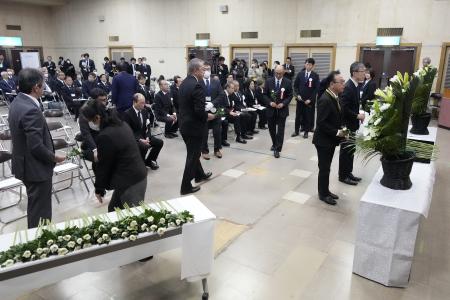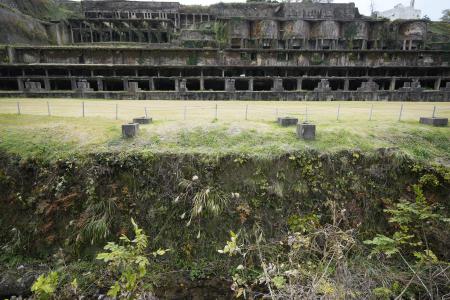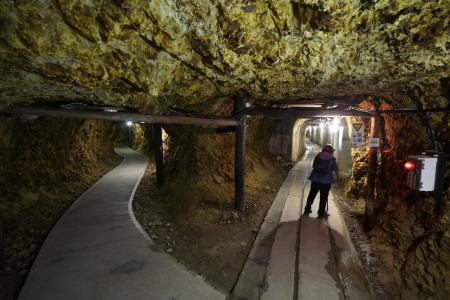





SADO (Niigata Pref.): A ceremony was held for the first time on Sunday to remember all those who worked at the now-defunct gold mines on Sado Island in the central Japan prefecture of Niigata, including those from the Korean Peninsula.
The event came after the Sado Island Gold Mines were designated a UNESCO World Heritage site earlier this year. On Sunday, it started in the Niigata city of Sado at 1 p.m., and about 70 participants, including Niigata Governor Hideyo Hanazumi, mourned for the deceased mine workers and offered floral tributes.
At the ceremony, the Japanese government was represented by Akiko Ikuina, parliamentary vice minister for foreign affairs, while the South Korean side did not send government officials or relatives of former Korean workers at the mines.
The South Korean government initially opposed the World Heritage designation, claiming that people from the Korean Peninsula had been forced to work at the Sado mines. But it accepted the designation after the Japanese government promised to hold an annual memorial ceremony for all Sado mine workers.
From the South Korean side, government officials and relatives of former mine workers were slated to attend Sunday’s ceremony but decided to skip it at the last minute on Saturday.
As the reason for skipping the ceremony, a South Korean foreign ministry official cited difficulties in reaching a mutually acceptable agreement with Japan before the ceremony. But Seoul is believed to take issue with media reports that Ikuina, the Japanese government representative at the ceremony, has visited Tokyo’s war-related Yasukuni Shrine in the past.
In her speech at the ceremony, Ikuina mentioned Korean mine workers who “engaged in difficult work under dangerous and harsh conditions in the mines far away from their homes, while thinking of their families.”
“Now that (the Sado mines) have been designated a World Heritage site, we must renew our pledge to pass (the history) on to the future,” she added.
The absence of South Korean participants at the ceremony was “regrettable,” said Ko Nakano, 83, head of the ceremony’s organizing committee. “We hoped (people from the South Korean side) would also attend.”
JIJI Press